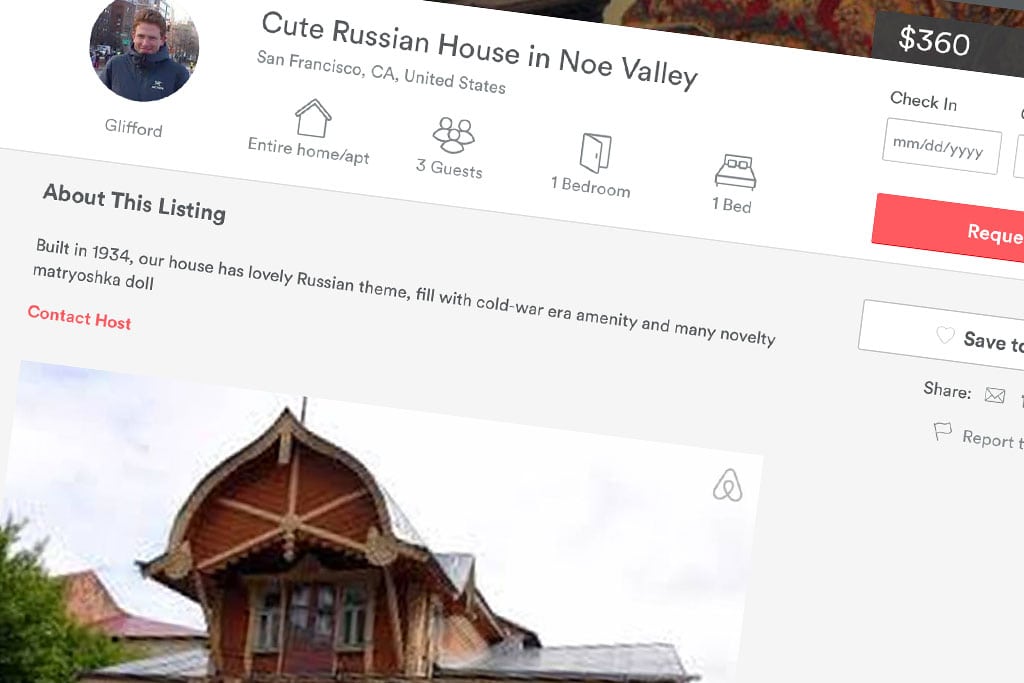Airbnb's Next Big Challenge Is Keeping the Scammers Away

Skift Take
Earlier this month as I was planning a visit to the Consumer Electronics Show in Las Vegas, Nevada, I turned to Airbnb in my research process. I'm a big fan of the site -- I use it over a hotel in nearly all of my personal travel and once in awhile I even use it for work.
This particular search required a room for myself and ten colleagues and the results yielded a full spectrum of McMansions, cramped casino suites and a sprinkling of quite-nice-but-far-too-remote properties. And then one property caught my eye: it was $800/night, spacious, had an enormous kitchen and had a balcony overlooking the strip. With a hot tub.
The host, Ricardo, had no reviews, so I emailed him to learn more about his property. Within an hour, I had a response from the host assuring me of his authenticity, encouraging me to book the property and including two links redacted by Airbnb. Minutes later, I had another email from Airbnb, only this was from the Trust and Safety Team.
We ask that you halt your communication with this individual immediately. We have removed their account so that you will no longer have access to their message thread.
Ricardo's property was a scam, a fake listing placed onto Airbnb to lure unsuspecting travelers towards an external site where my credit card number could be lifted. As Airbnb grows in reach and user base, more predators are flocking to the site to prey on unsuspecting travelers, just as they have for years on HomeAway, VRBO, and other vacation rental sites. It's a sign of success for any growing industry, but it also could be one if its greatest risks.
Tools of the Trade
Fraudsters first target potential travelers on Airbnb by luring them into a potential property. Using a composite of photos and details collected from the web, they construct an ideal vacation rental in a target market and then price it very competitively. In the case of the above Las Vegas listing, the property has a great view over the strip, several bedrooms and a well stocked kitchen -- all for the price of a decent suite in a chain hotel.
When users reach out to book the property or learn more, the host tries to deliver links to an external site to collect booking data. There, a credit card number is taken and the host disappears.
Well aware that unscrupulous hosts may try to circumvent their billing and security systems, Airbnb has a strict communication policy that strips out any phone numbers or email addresses across their communication system. And though that cuts down on the lion's share of fake listings, there are scammers that still try to find a way around.
On one such property, a Las Vegas host put an email address directly onto a picture of the property to avoid the word filters that Airbnb used. Two days later, the entire listing had evaporated.
Scammers also have to go through the effort of setting up and creating a fake account on Airbnb, but that process is surprisingly easy. Using fake photos, a fake profile, a fake address and a real phone number it's easy to create an initial listing on the site.
How easy? Here's the property we created in San Francisco.
If generating fake credentials isn't enough, it's also possible for scammers to take control of a current account (likely through the bulk purchase of hacked passwords) and make false listings under an unsuspecting user's name.
Another property that we checked in Las Vegas was through a gentleman named "Terrence Olson," who unfortunately had no idea who we were, or that he had this particular property listing.
Trust and Safety at Airbnb
For their part, the team at Airbnb takes fake accounts seriously and is aggressive in shutting down any spammers. Most inquires that we made into dubious properties at Airbnb were met with swift action by the Trust and Safety team politely warning us of fradulent listings and removing the questionable posts and users.
Like any business explosively growing its user base though, in the coming months Airbnb will be subject to an exponential volume of scammers. Ebay went through the same teething problems. Uber will too (if it doesn't self-destruct, of course). If Airbnb's Trust and Safety team stays ahead of the curve then the risk to consumers will largely be mitigated. But if the market floods with fraudulent listings, consumer trust and the community that Airbnb values so much will quickly dissipate.






